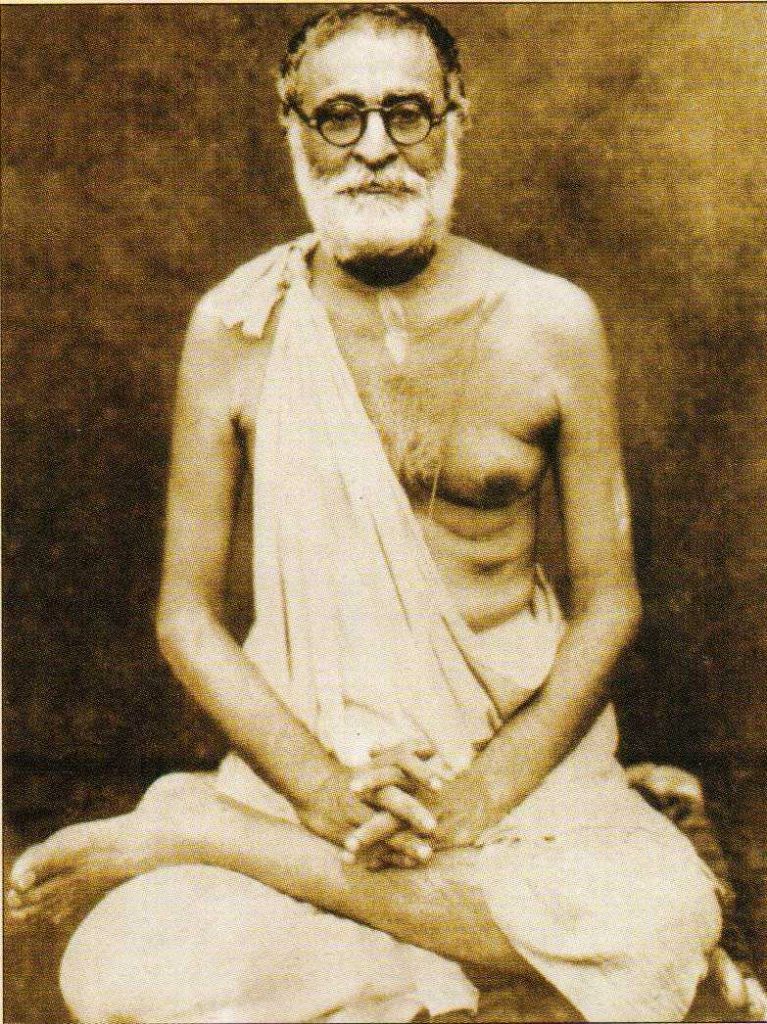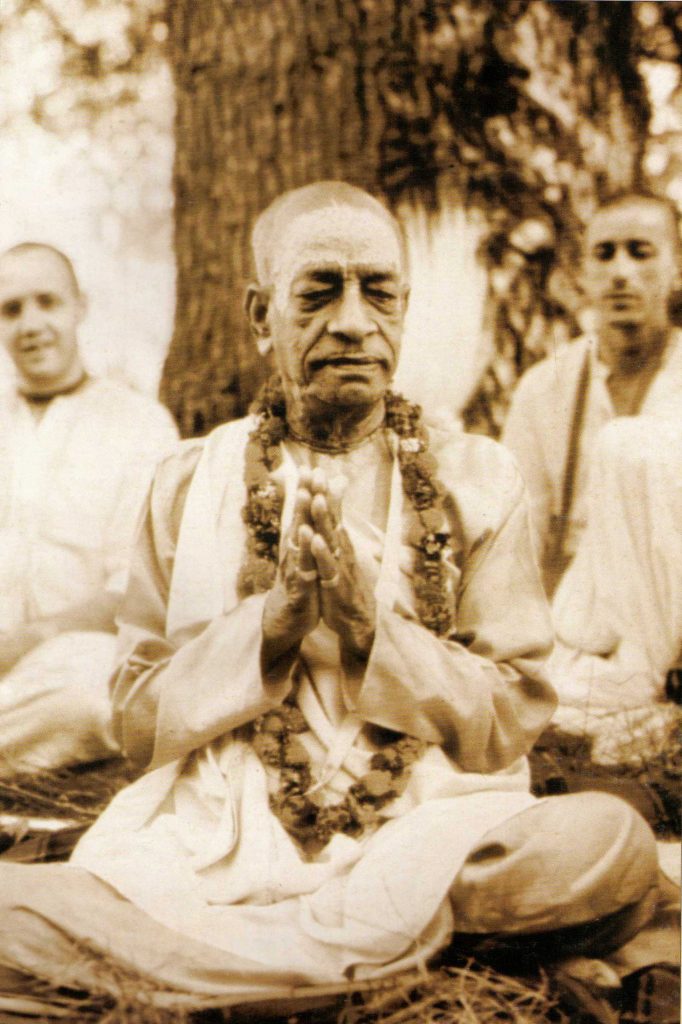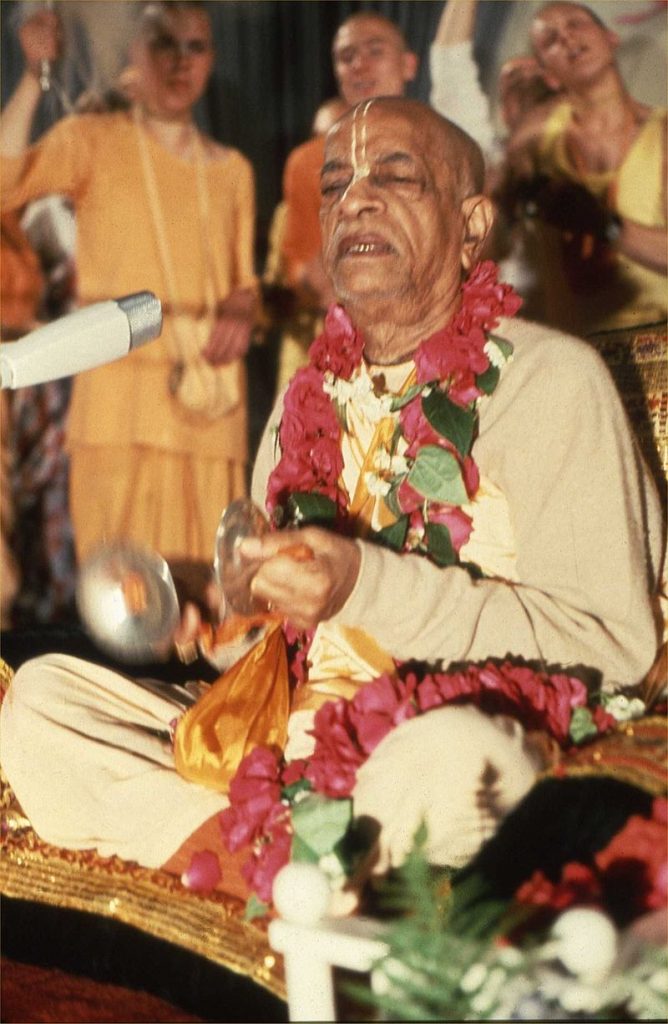Founder Acharya

His Divine Grace A.C. Bhaktivedanta Swami Srila Prabhupāda
His Divine Grace A.C. Bhaktivedanta Swami Srila Prabhupāda (1896 –1977), Founder-Ācārya of the Bhaktivedanta Institute was one of the most prominent spiritual and cultural ambassadors of the 20th century. He belongs to the monotheistic Gaudiya Vaishnava Vedanta tradition of India which upholds the three stages of realization of the Absolute Truth namely, Impersonal Brahman, Super Soul and finally Supreme Personality of Godhead as revealed in Śrīmad-Bhāgavatam, the natural commentary on the vedantasutra, and various other spiritual traditions of the World.
He had a profound notion of the many facets of science and religion. He strongly felt that scientific knowledge would remain incomplete if we ignore consciousness based paradigms offered by religions of the world in their search for the deeper meaning of our existence. He felt that a synthesis of science and spirituality would only be possible through the joint efforts and open discussions by the deep thinkers of the world. He promoted the concept that “Life comes from Life” indicating a non-material origin of life, and was hopeful that that scientists across the world would be open to scientific exploration of this alternative paradigm.
Anyone who is steady in his determination for the advanced stage of spiritual realization and can equally tolerate the onslaughts of distress and happiness is certainly a person eligible for liberation.
– A.C. Bhaktivedanta Swami Prabhupada
Founder Acharya of Bhaktivedanta Institute
Śrīla Prabhupāda was born in Kolkata and educated at the prestigious Scottish Church College which produced some of India’s most famous leaders and spiritual reformers. Before adopting the life of a pious renunciant or sannyasa in 1959, he was married with children and owned a pharmaceutical business. After taking his vow of renunciation, he began writing English commentaries on Vaiṣṇava scriptures. In the early 1960s, he single-handedly published the first three volumes of the first book of Śrīmad-Bhāgavatam, filling four hundred pages each with a detailed commentary.
In 1965 he left India for the United States, obtaining free passage on a freight ship, with the aim of fulfilling his spiritual master’s instruction to spread the message of Śrī Caitanya around the world in English. He only carried with him a suitcase, an umbrella, a supply of dry cereal, about eight dollars worth of Indian currency, and several boxes of his books. In ten years, he opened over a hundred centers around the world teaching Vaiṣṇava Vedanta, and had about five thousand students. As a traveling Vaiṣṇava monk, he became the world’s most influential communicator of Vaiṣṇava theology to the West. Subsequently Śrīla Prabhupāda authored over 70 volumes on the Vaiṣṇava tradition, which are highly respected by scholars for their authority, depth, fidelity to the tradition, and clarity. Several of his works are used as textbooks in numerous college courses and reference materials for religionists and scholars. His writings have been translated into 76 languages.

Srila Bhaktisiddhanta Saraswati Thakur
If we want to follow the path of true auspiciousness, we should give up the countless opinions of people and only hear the words of the vedas.
– Srila Bhaktisiddhanta Saraswati Thakur

Śrīla Prabhupāda was very concerned about how science and technology was directing humanity in the modern world towards a purely materialistic worldview. In his commentary to the Bhagavad-gita (9.2), he wrote “Generally, people are not interested in this confidential knowledge; they are educated in external knowledge. As far as ordinary education is concerned, people are involved with so many departments: politics, sociology, physics, chemistry, mathematics, astronomy, engineering, etc. There are so many departments of knowledge all over the world and many huge universities, but there is, unfortunately, no university or educational institution where the science of the spirit soul is instructed. Yet the soul is the most important part of this body; without the presence of the soul, the body has no value”.
When he addressed the students of the Massachusetts Institute of Technology (M.I.T.), Boston in 1968, he said, “You are all students of technology. This Krishna consciousness movement is also another technology…Unfortunately, there is no department for distributing knowledge of the science of the soul. But, that is the most important thing.” Srila Prabhupāda critiqued the modern reductionist framework which tries to explain life solely in terms of atoms and molecules. Drawing from the conclusions of the teachings of Śrī Caitanya, and the timeless message of the Vedic literatures, Śrīla Prabhupāda taught that the living being or life is beyond molecules, and the fundamental property of life is consciousness and consciousness is nonmaterial. Further the origin of consciousness or life is Śrī Krishna, the Supreme Being or God.
” A sincere soul is helped by the Lord through meeting a bona-fide spiritual master, the representative of the Lord. By the instruction of such a spiritual master, one gets the seed of bhaki-yoga.”
– A.C. Bhaktivedanta Swami Prabhupada
Founder Acharya of Bhaktivedanta Institute
Śrīla Prabhupāda also envisioned that there would be lasting peace and harmony in society at large if the modern sciences and arts were used in the glorification of God rather than for selfish and exploitative objectives. In one of his commentaries to the ancient Indian text the Śrīmad-Bhāgavatam 1.5.22, he wrote “When advancement of knowledge is applied in the service of the Lord, the whole process becomes absolute…therefore, all the sages and devotees of the Lord have recommended that the subject matter of art, science, philosophy, physics, chemistry, psychology and all other branches of knowledge should be wholly and solely applied in the service of the Lord…Advanced people are eager to understand the Absolute Truth through the medium of science, and therefore a great scientist should endeavor to prove the existence of the Lord on a scientific basis.”
It was with this view that Śrīla Prabhupāda formed the Bhaktivedanta Institute in 1974. He formed the Bhaktivedanta Institute with a vision to encourage humanity to inquire about the nature of the Absolute Truth, the nature of reality, and the nature of our existence. He provided the vision and mission for the Bhaktivedanta Institute, which was implemented by its Director Dr. T. D. Singh and other members. In 1977, just a month before his death, Śrīla Prabhupāda oversaw the Bhaktivedanta Institute’s first international conference entitled “Life comes from Life”. Srila Prabhupāda’s writings continue to be an inspiration for the scientists and scholars associated with the Bhaktivedanta Institute.
Śrīla Prabhupāda is also renowned for founding the International Society for Krishna Consciousness (ISKCON) in 1966. Today ISKCON has hundreds of thousands of members from all races, religions, nations, and occupations and is dedicated to disseminating knowledge of the soul to the general public.

“For man, mind is the cause of bondage and mind is the cause of liberation. Mind absorbed in sense objects is the cause of bondage, and mind detached from the sense objects is the cause of liberation.”
– A.C. Bhaktivedanta Swami Prabhupada
Founder Acharya of Bhaktivedanta Institute
